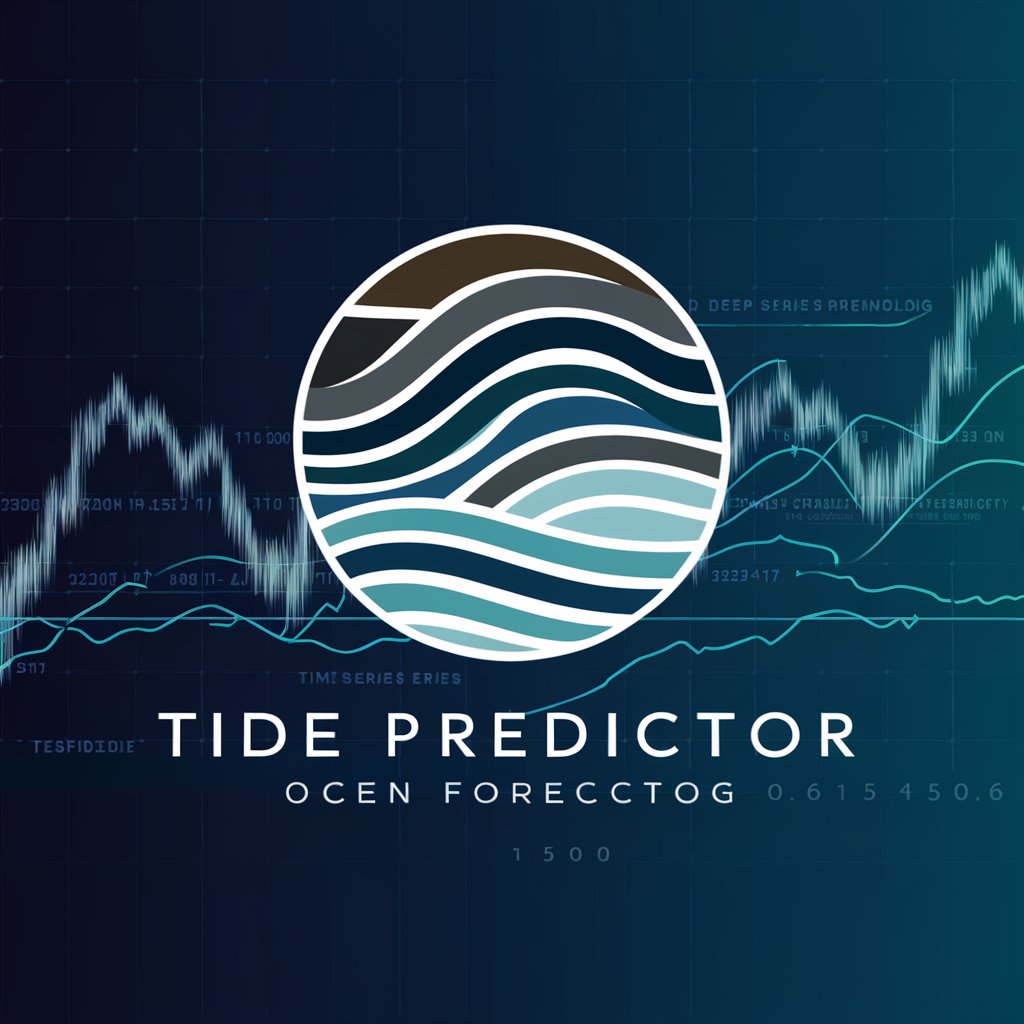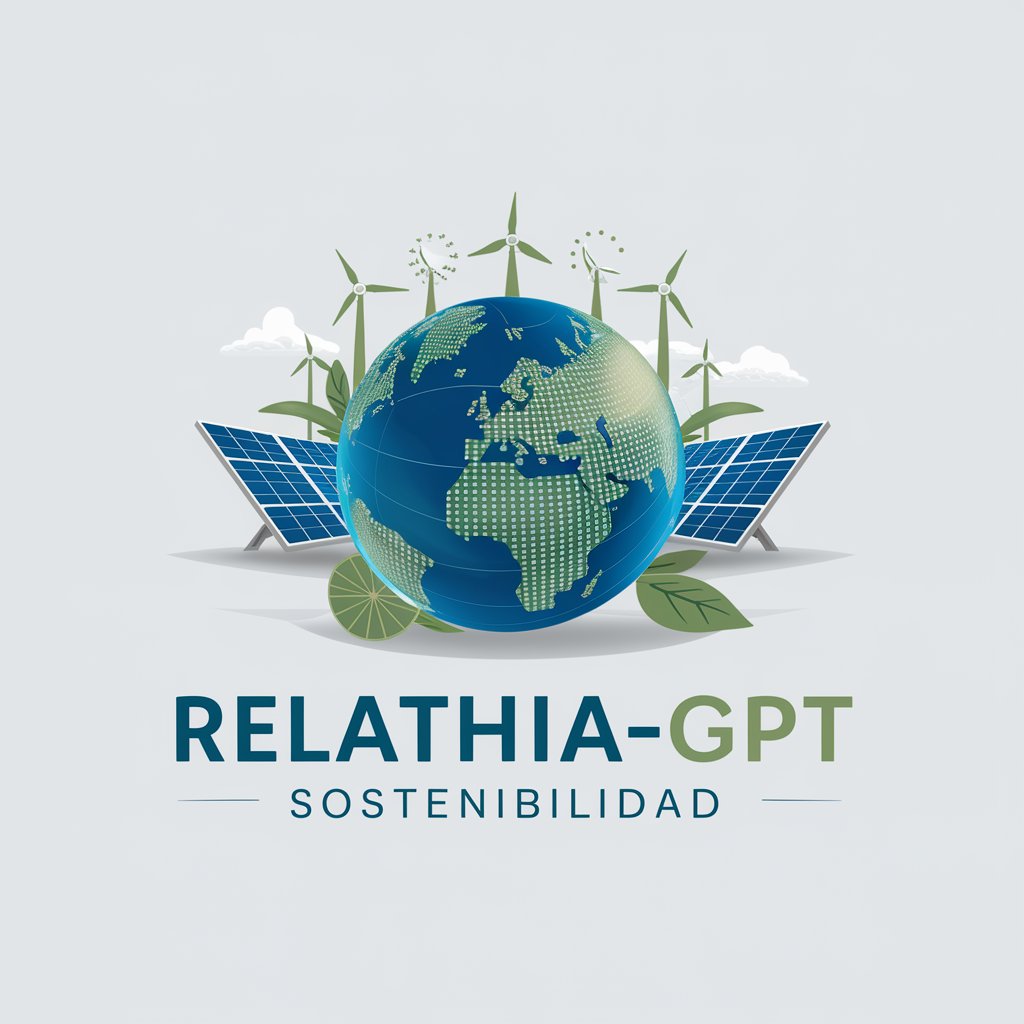8 GPTs for Energy Forecasting Powered by AI for Free of 2026
AI GPTs for Energy Forecasting are advanced machine learning models designed to predict future energy demands, production levels, and price fluctuations. These tools leverage Generative Pre-trained Transformers (GPTs) to analyze historical energy data, weather patterns, and consumption trends, providing accurate forecasts. This technology is crucial for optimizing energy distribution, enhancing grid reliability, and supporting decision-making processes in the energy sector. By harnessing the power of GPTs, energy forecasting tools offer tailored solutions that cater to the specific needs of the energy industry, enabling more efficient and sustainable energy management.
Top 8 GPTs for Energy Forecasting are: Forecast Master,WindyGPT,Tide Predictor,Relathia-GPT Sostenibilidad,Solar Agent,Energy 3.0,FedGNN,Energy Expert
Forecast Master
Empower decisions with AI-powered forecasting

WindyGPT
Empowering Wind Energy with AI

Tide Predictor
AI-Driven Tidal Forecasting Insights

Relathia-GPT Sostenibilidad
Powering Sustainable Energy Futures with AI

Solar Agent
Empowering Solar Decisions with AI

Energy 3.0
Empowering Energy Intelligence with AI

FedGNN
Unlocking insights with federated graph learning

Energy Expert
Power your efficiency with AI-driven insights.

Key Attributes of AI GPTs in Energy Forecasting
AI GPTs for Energy Forecasting come equipped with several distinctive features, including adaptability to various forecasting needs, from short-term weather impact analysis to long-term energy consumption trends. They excel in processing and analyzing large datasets, identifying patterns, and predicting future conditions with high accuracy. Special features include natural language processing for analyzing textual data, such as reports and news, technical support for integrating with existing energy management systems, and advanced data analysis capabilities for handling complex simulations and scenario planning.
Who Benefits from AI GPTs in Energy Forecasting?
The primary users of AI GPTs for Energy Forecasting include energy sector professionals, policy makers, researchers, and utility companies. These tools are accessible to novices interested in understanding energy trends, as well as to developers and data scientists looking for advanced customization options. The intuitive interfaces and extensive documentation make these tools approachable for users without coding skills, while their programmability and integration capabilities appeal to those with technical backgrounds.
Try Our other AI GPTs tools for Free
Brand Investigation
Discover how AI GPTs for Brand Investigation can transform your brand analysis with advanced insights into market trends, consumer behavior, and competitive landscape.
Domain Verification
Discover how AI GPTs for Domain Verification revolutionize online security with tailored solutions for ensuring domain authenticity and integrity.
USCIS Compliance
Discover AI GPTs tailored for USCIS Compliance, enhancing navigation and adherence to immigration policies with advanced AI support. Ideal for applicants, lawyers, and organizations.
Travel Content
Discover how AI GPTs for Travel Content revolutionize travel planning and content creation with personalized, up-to-date insights and seamless integration capabilities.
Vacation Rentals
Discover how AI GPTs revolutionize the vacation rental industry, offering customized solutions for property management, guest engagement, and marketing.
Keyword Integration
Discover how AI GPTs for Keyword Integration can transform your content, making it more discoverable and relevant with smart keyword embedding.
Expanding the Horizon with AI GPTs in Energy
AI GPTs offer customized solutions across various sectors within the energy industry, from optimizing power grid operations to facilitating renewable energy integration. Their user-friendly interfaces and compatibility with existing systems make them a versatile tool for enhancing energy efficiency and sustainability. The continuous evolution of GPT models further enriches their potential, promising innovative approaches to energy forecasting and management.
Frequently Asked Questions
What is AI GPT for Energy Forecasting?
AI GPT for Energy Forecasting is a machine learning tool that uses generative pre-trained transformers to predict future energy needs, production, and prices by analyzing data trends and patterns.
Who can use these forecasting tools?
These tools are designed for a wide audience, including energy professionals, policy makers, utility companies, and researchers, as well as novices and developers interested in energy trends.
How accurate are AI GPT predictions for energy forecasting?
The accuracy of AI GPT predictions varies based on the data quality and model training, but these tools are generally highly accurate, leveraging advanced algorithms and large datasets.
Can AI GPT tools integrate with existing energy management systems?
Yes, AI GPT tools for Energy Forecasting are designed with flexibility in mind, allowing for integration with existing energy management systems and workflows.
Do I need coding skills to use these tools?
No, many AI GPT tools for Energy Forecasting are designed to be user-friendly, with interfaces that do not require coding skills, though coding can enhance customization.
What makes AI GPTs superior to traditional forecasting methods?
AI GPTs can process and analyze vast amounts of data more efficiently than traditional methods, identify complex patterns, and provide more accurate and granular forecasts.
Can these tools forecast renewable energy production?
Yes, AI GPTs for Energy Forecasting are capable of predicting renewable energy production by analyzing variables like weather patterns, historical production data, and technological advancements.
How do these tools contribute to sustainable energy management?
By providing accurate and timely forecasts, AI GPT tools help optimize energy distribution, reduce waste, and support the integration of renewable energy sources, contributing to more sustainable energy management practices.